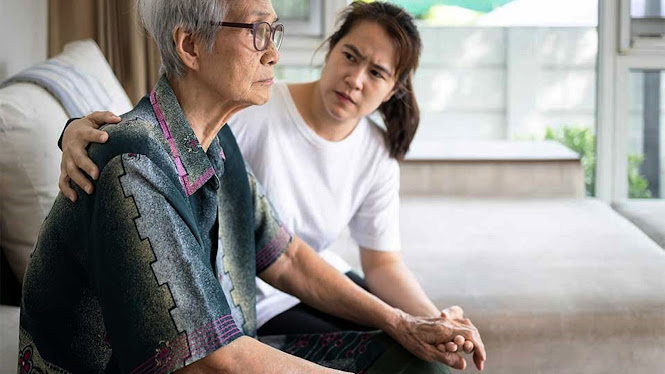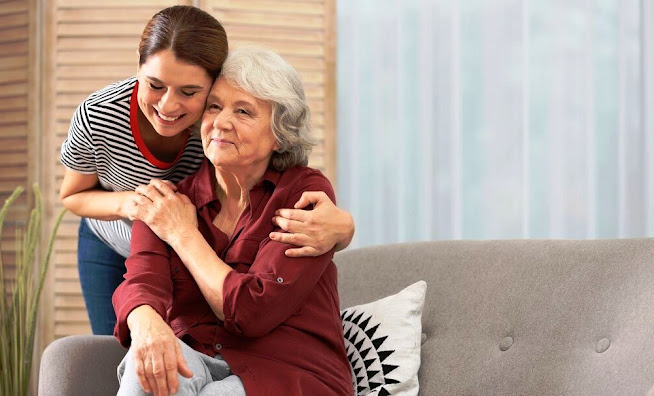8 Common Stereotypes About Seniors Debunked
Stereotypes are pervasive in every culture, especially among seniors. Mostly, people overlook that every senior is unique, and only some people fit into the stereotypes about aging. While caregiver involves constant learning about the aging process, they should be able to differentiate between myths and facts. Edmonton home care share are a few common stereotypes about older adults that have been debunked.
1. Socializing isn’t Important for Seniors
Socializing is essential for people of all ages, and some
studies found regular human interactions get more important as a person ages.
Leisure and social activities are deeply related to a senior’s emotional,
physical, and cognitive well-being. Seniors who avoid socializing with friends
and family members are more likely to face excess depression and anxiety, and
even dementia.
For families living in Edmonton, Home care can
be an excellent option for their loved ones if they need companionship,
socialization, or even managing daily living activities.
2. Seniors Lose Interest in Hobbies
It is a common belief that seniors tend to give up on their
favorite hobbies. Seniors sleep much less than young people, so they have more
free time for leisure activities. By pursuing hobbies like cooking, gardening,
knitting, and woodcarving, seniors can slow the onset of age-related cognitive
decline and boost their quality of life. Family caregivers should encourage
their aging loved ones to learn and master new hobbies or enjoy the old ones.
3. People Don’t Remain Creative in Senior Years
Many of the world’s best artists did not find their passion
until their late 60s. During retirement, when seniors don’t need to focus on a
career or feeding a growing family, they can invest more time and energy into
pursuing their creativity. Ted Zuber from Montreal can be taken as a great
inspiration. He spent most of his life serving in the military, and after
retiring, Zuber learned to make beautiful oil paintings that can be found worldwide.
4. Seniors Cannot Change Their Beliefs
Contrary to what most of the world believes, older adults can
adjust to new situations and adopt new skills. Since mental and physical health
changes with age, aging adults constantly strive to find new ways to make the
most of their golden years.
5. Seniors Are Not Interested in Romance or Intimacy
Contrary to popular belief, seniors remain interested in romance
and intimacy well into their later years. Studies have shown that many older
adults have active romantic lives and maintain fulfilling relationships with
their partners. Emotional and physical connections are essential to human
beings throughout their lives, and seniors are no exception. Society should
acknowledge and respect the romantic needs of older adults, just as it does for
younger generations.
6. Seniors Are Bad Drivers
The stereotype that all seniors are bad drivers is not only
unfounded but also dangerous. While it is true that certain physical and
cognitive changes associated with aging can affect driving abilities, not all
seniors experience these challenges. Research indicates that older drivers are
generally safer on the roads due to their cautious driving habits and
experience. Regular driver evaluations and adjustments to driving habits can
help older adults remain safe on the roads.
7. Seniors Are a Burden on Society
Perhaps one of the most harmful stereotypes is the perception
that seniors burden society. Older adults contribute significantly to their
communities through their knowledge, skills, and wisdom. Many seniors continue
to work, pay taxes, and actively participate in volunteer initiatives. They
also play a crucial role in caregiving for their grandchildren, supporting the
economy, and preserving cultural heritage.
8. Seniors Are Lonely and Isolated
Another stereotype that needs debunking is the assumption that
seniors are lonely and isolated. While some older adults may experience social
isolation, this is not a universal truth. Many seniors have strong social
networks and actively participate in various social activities, such as clubs,
religious gatherings, and community events. Additionally, modern technology has
facilitated easier communication and helped seniors stay connected with friends
and family, reducing feelings of loneliness.
These are the stereotypes caregivers should never let their
quality of care get influenced. If your loved one needs assistance to lead a
healthy life or you needs a respite from your caregiving duties, consider
hiring professional non-medical in-home care services .



Comments
Post a Comment